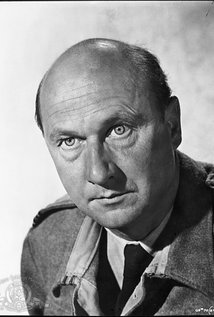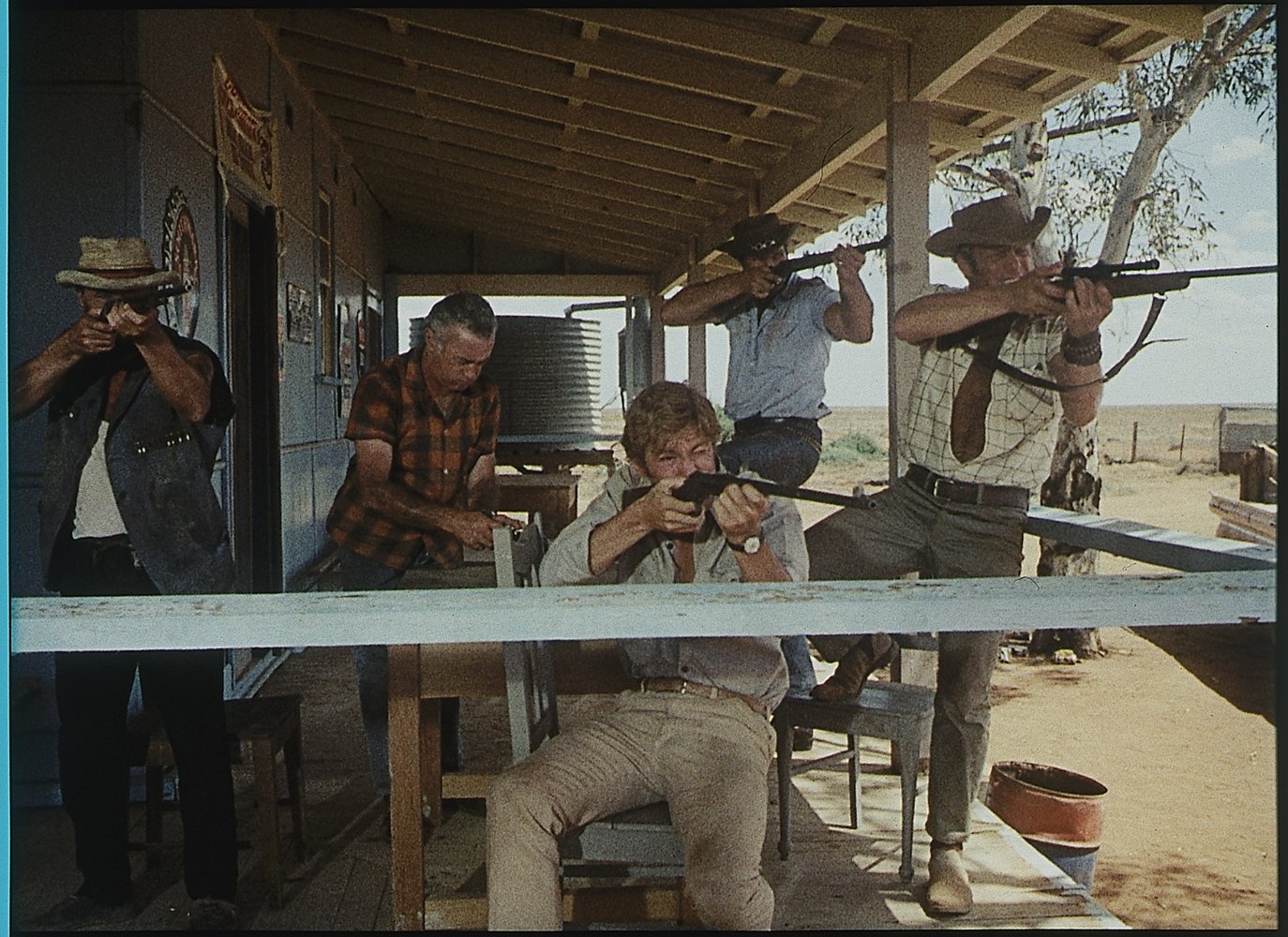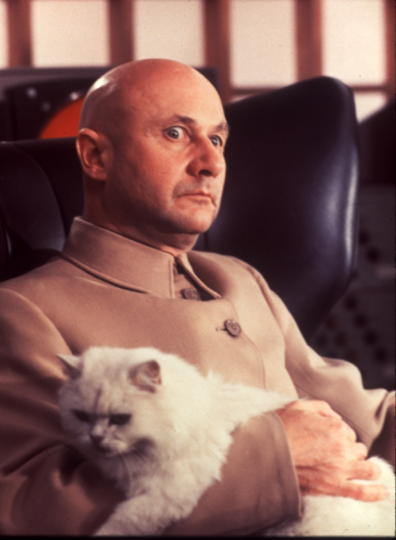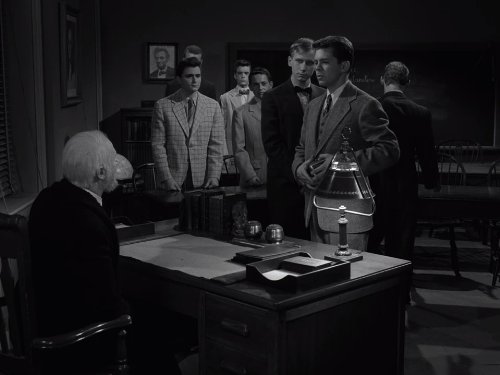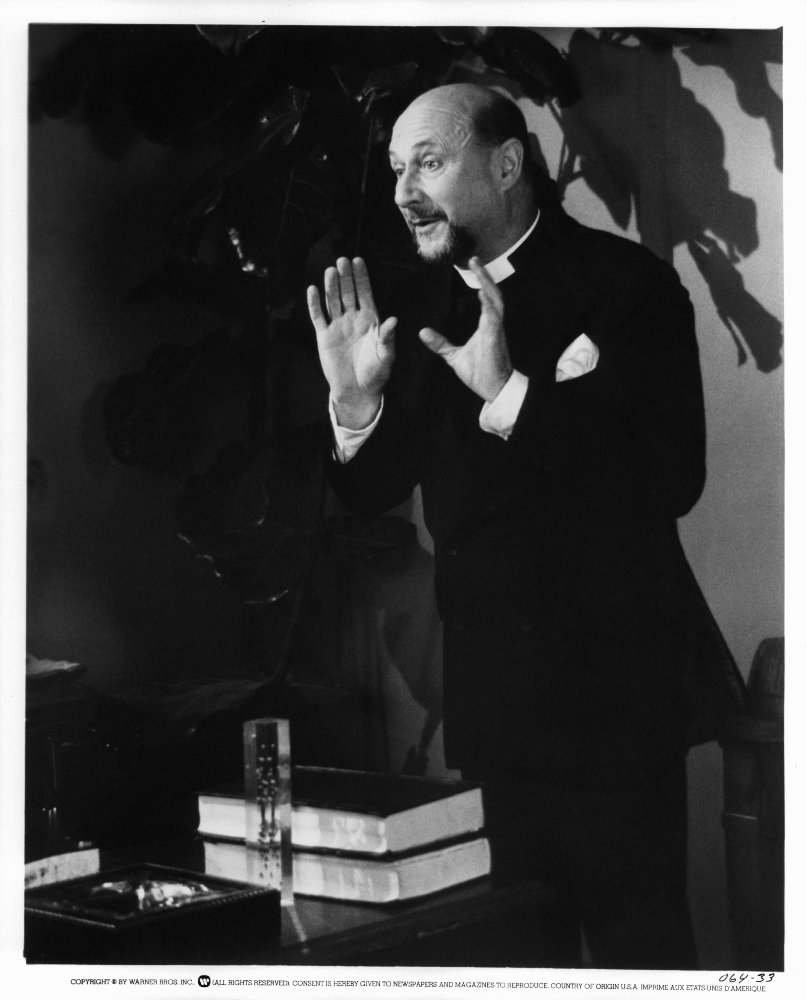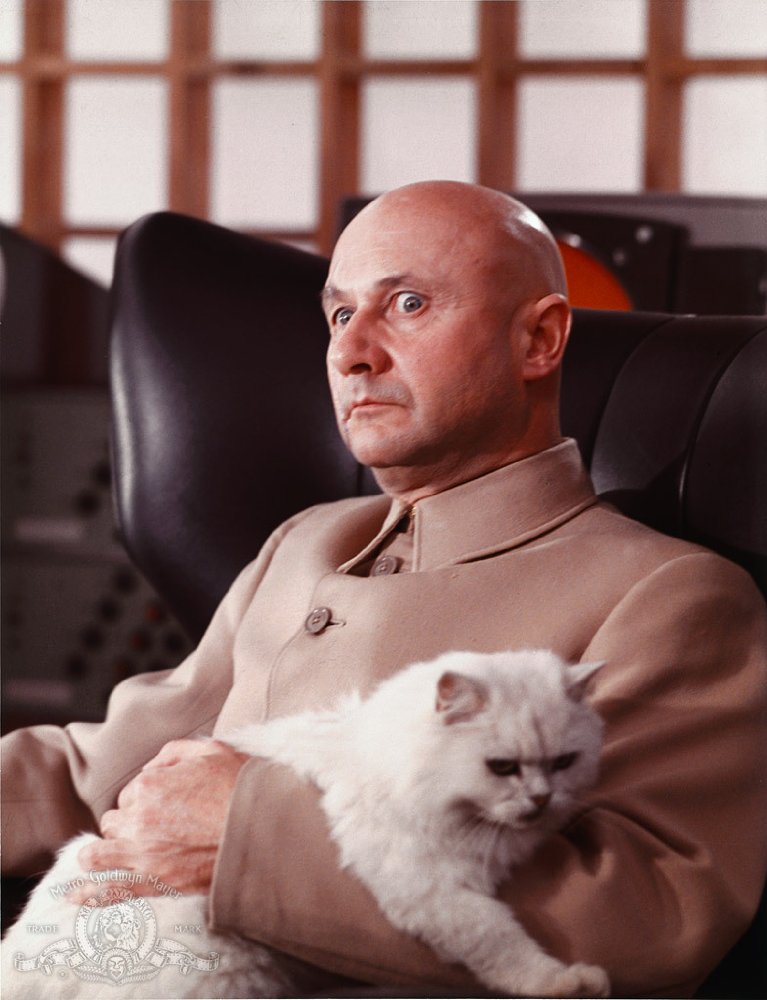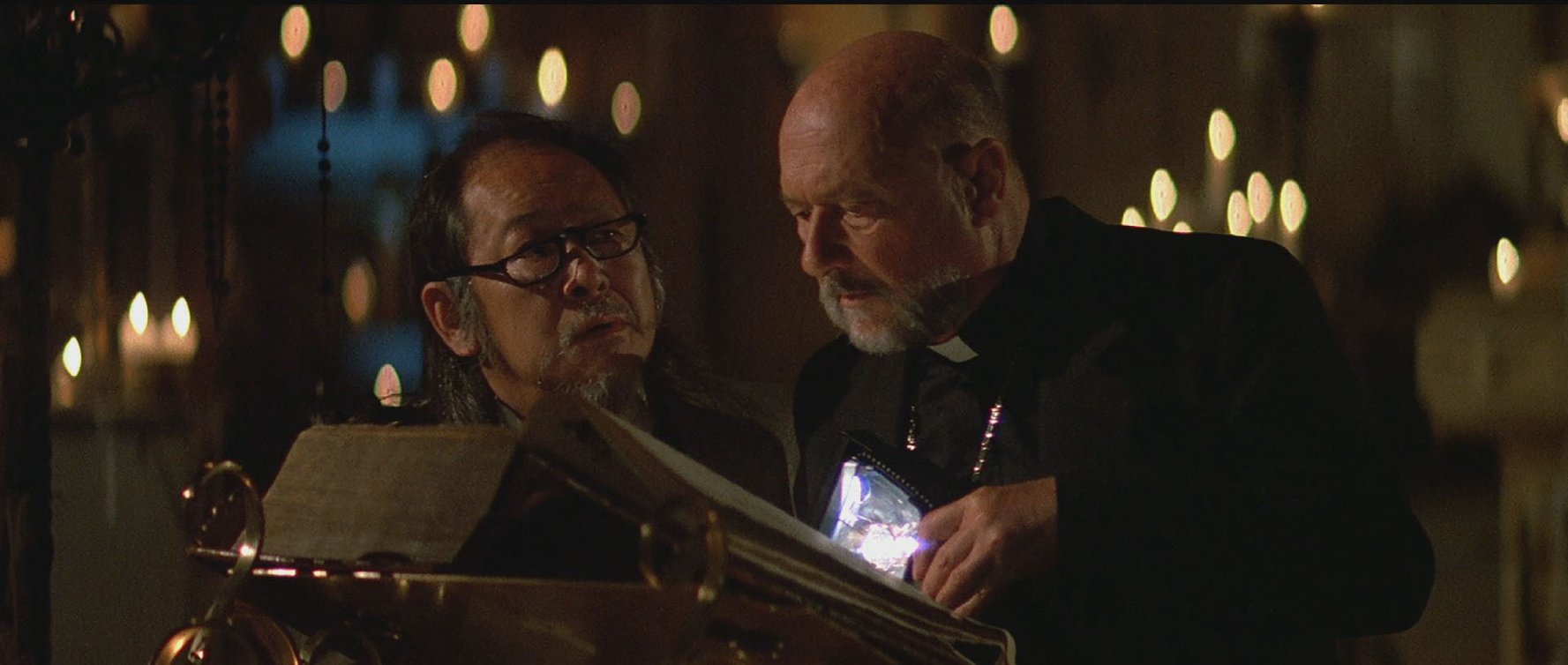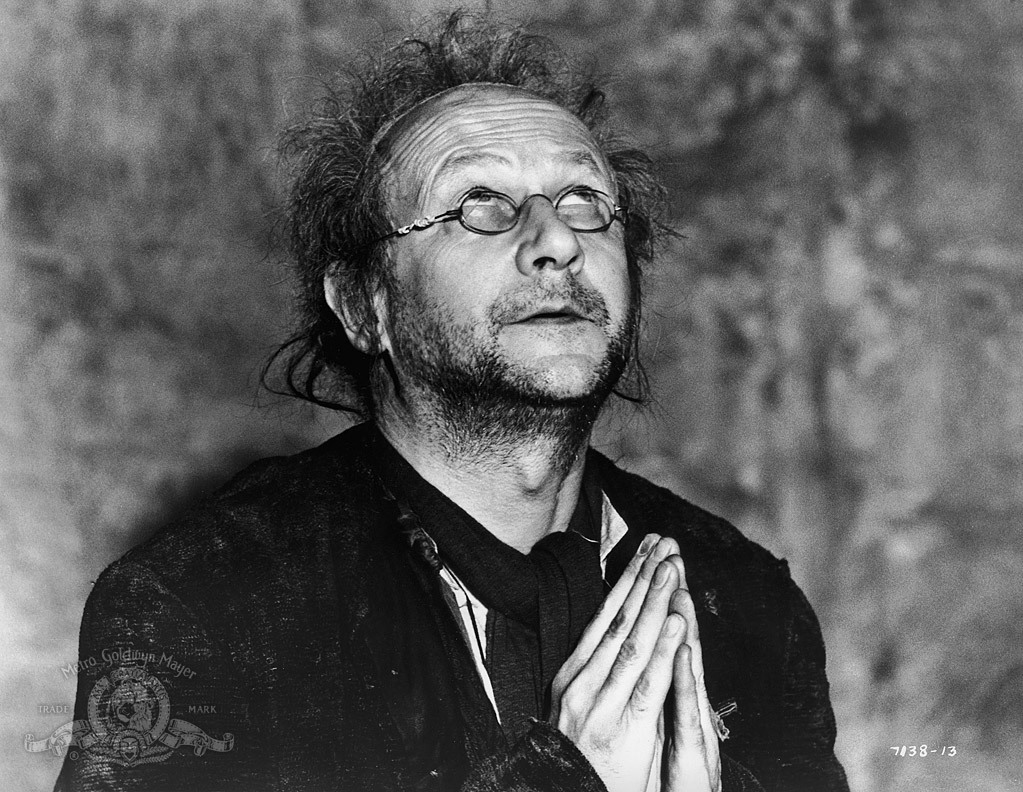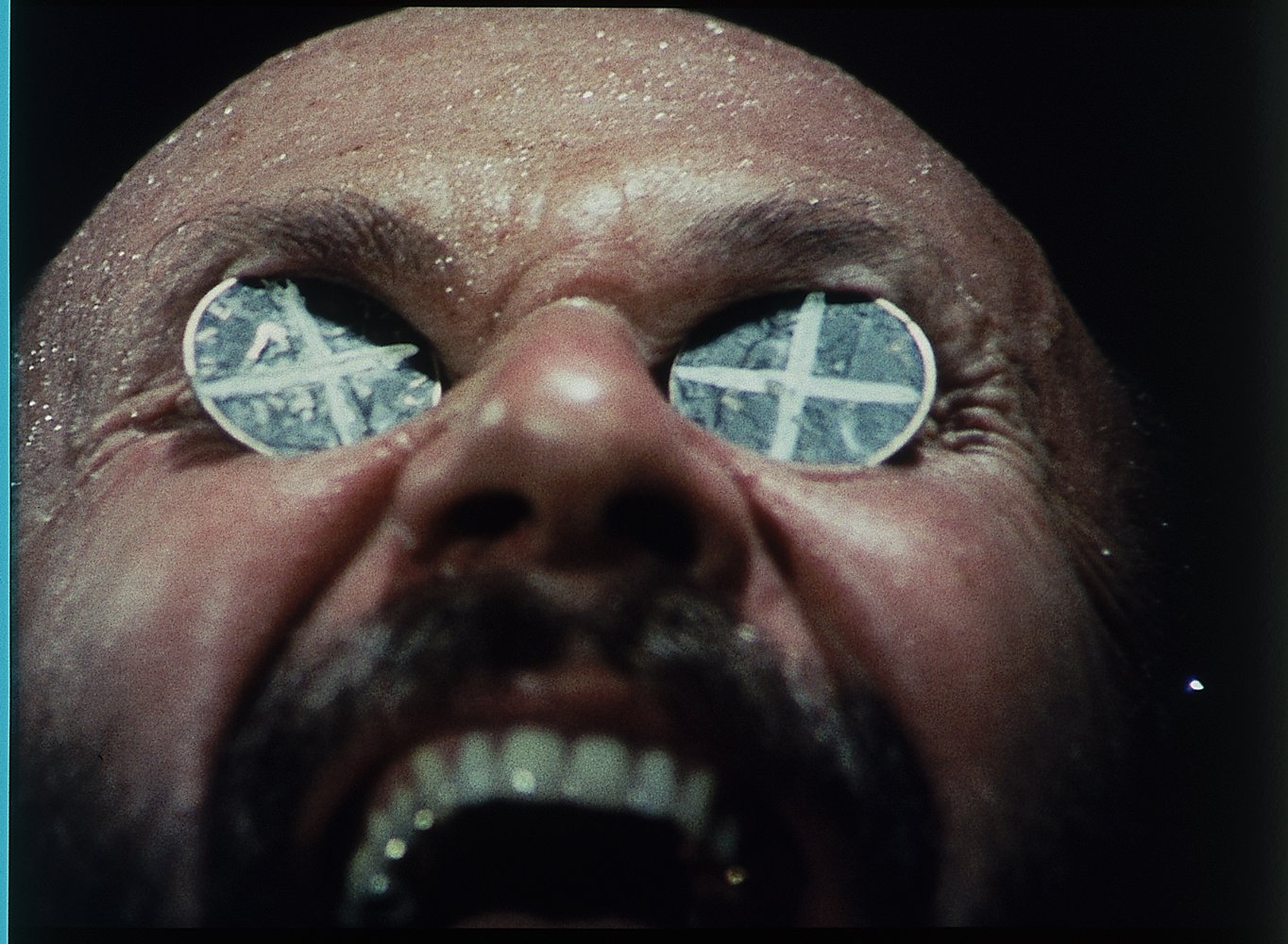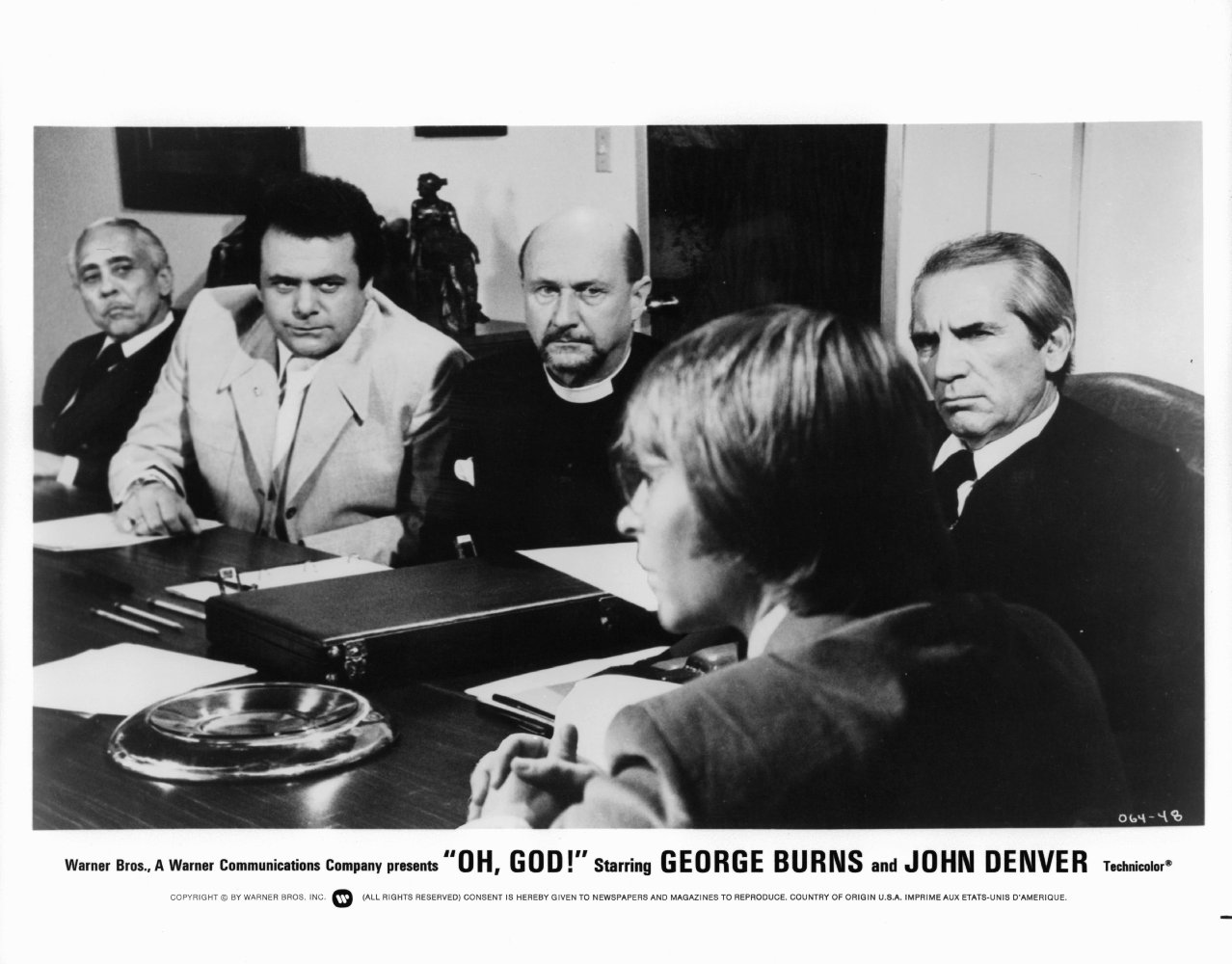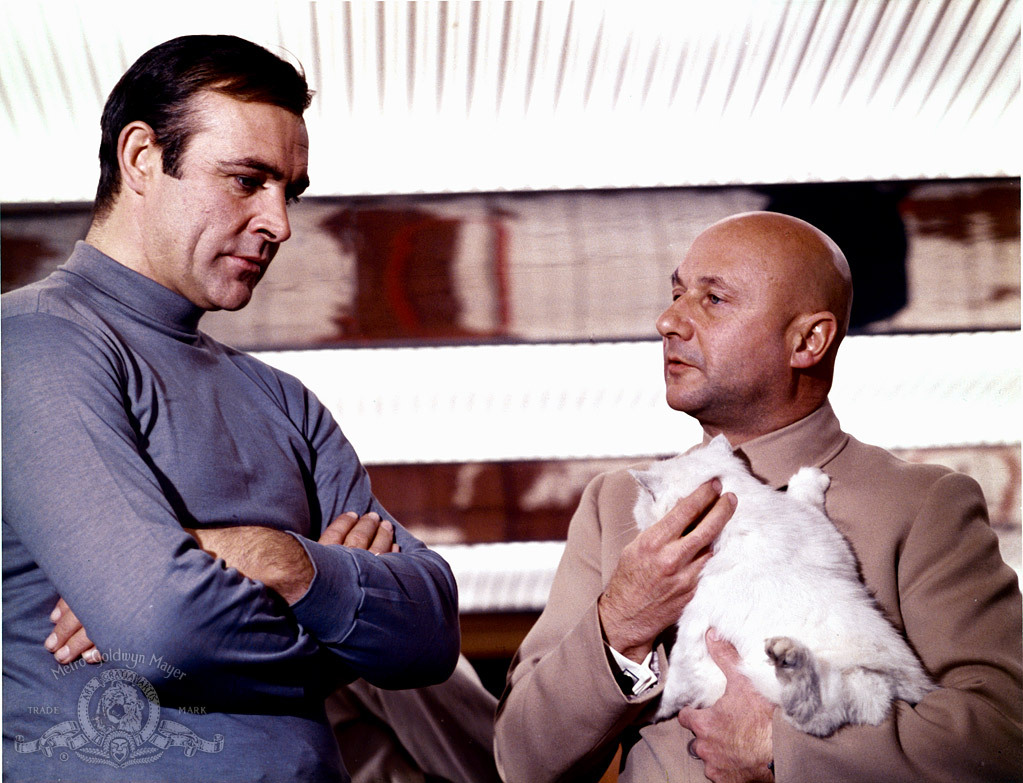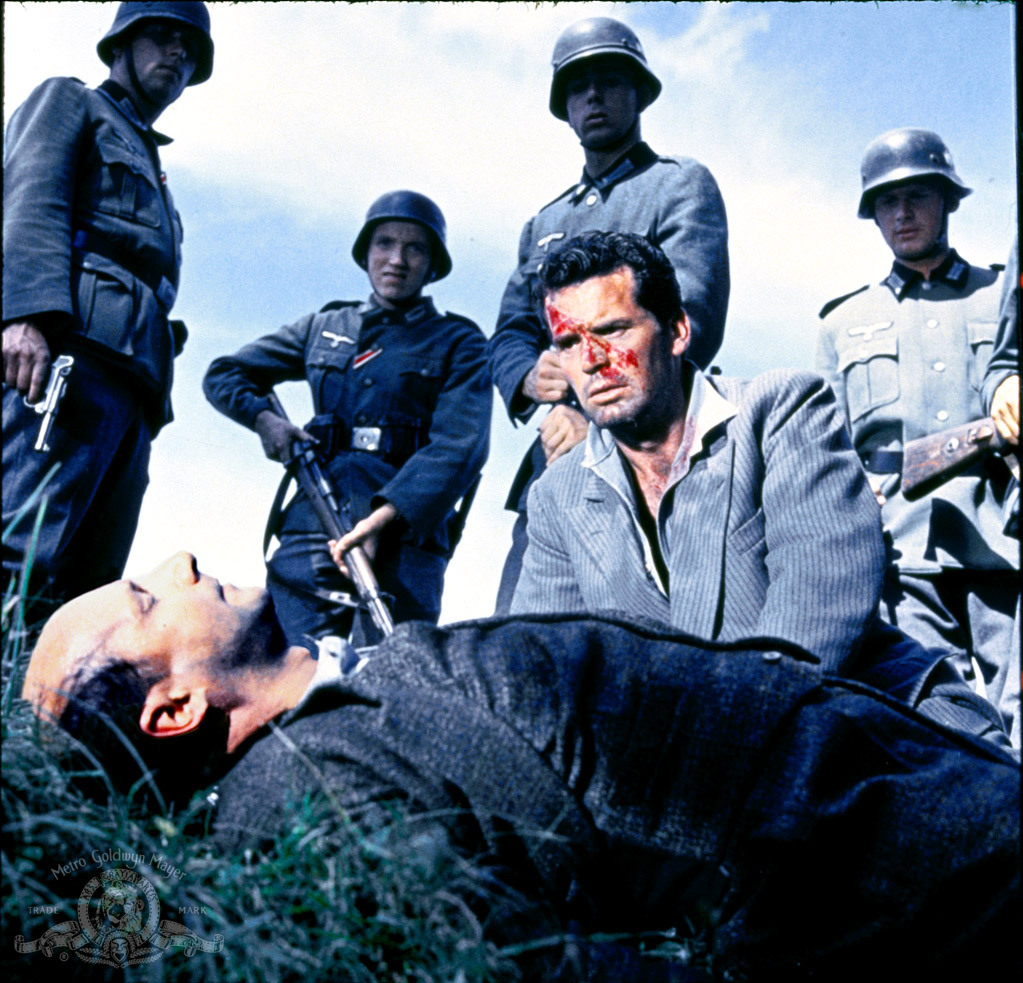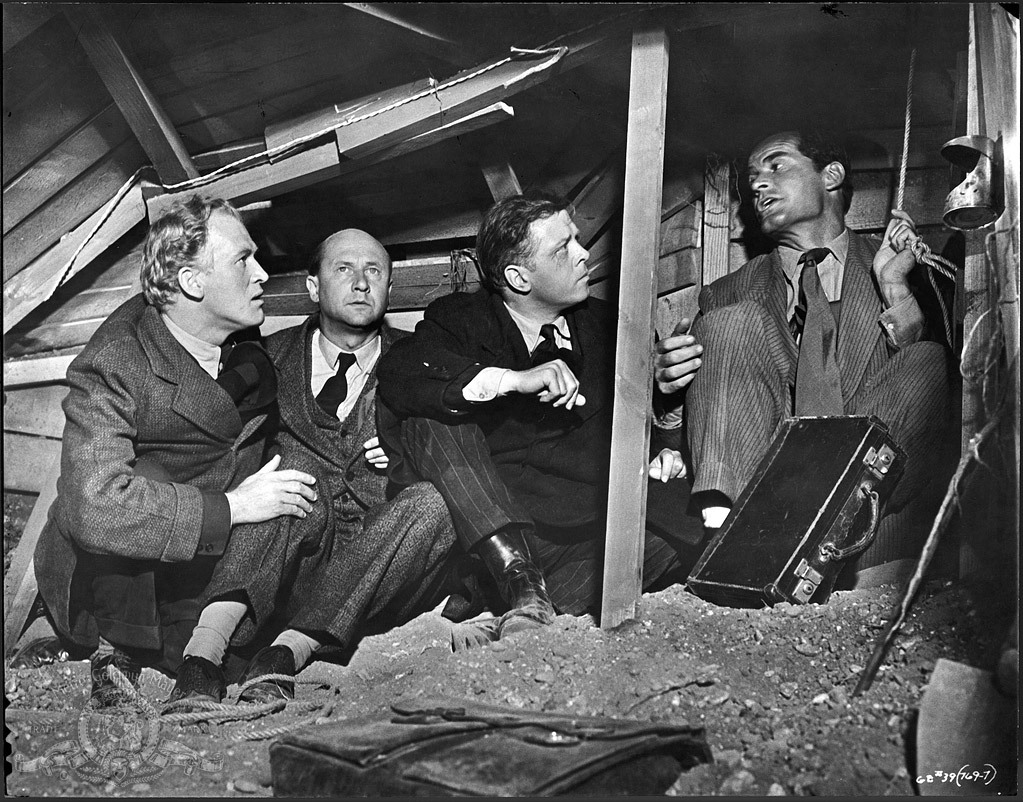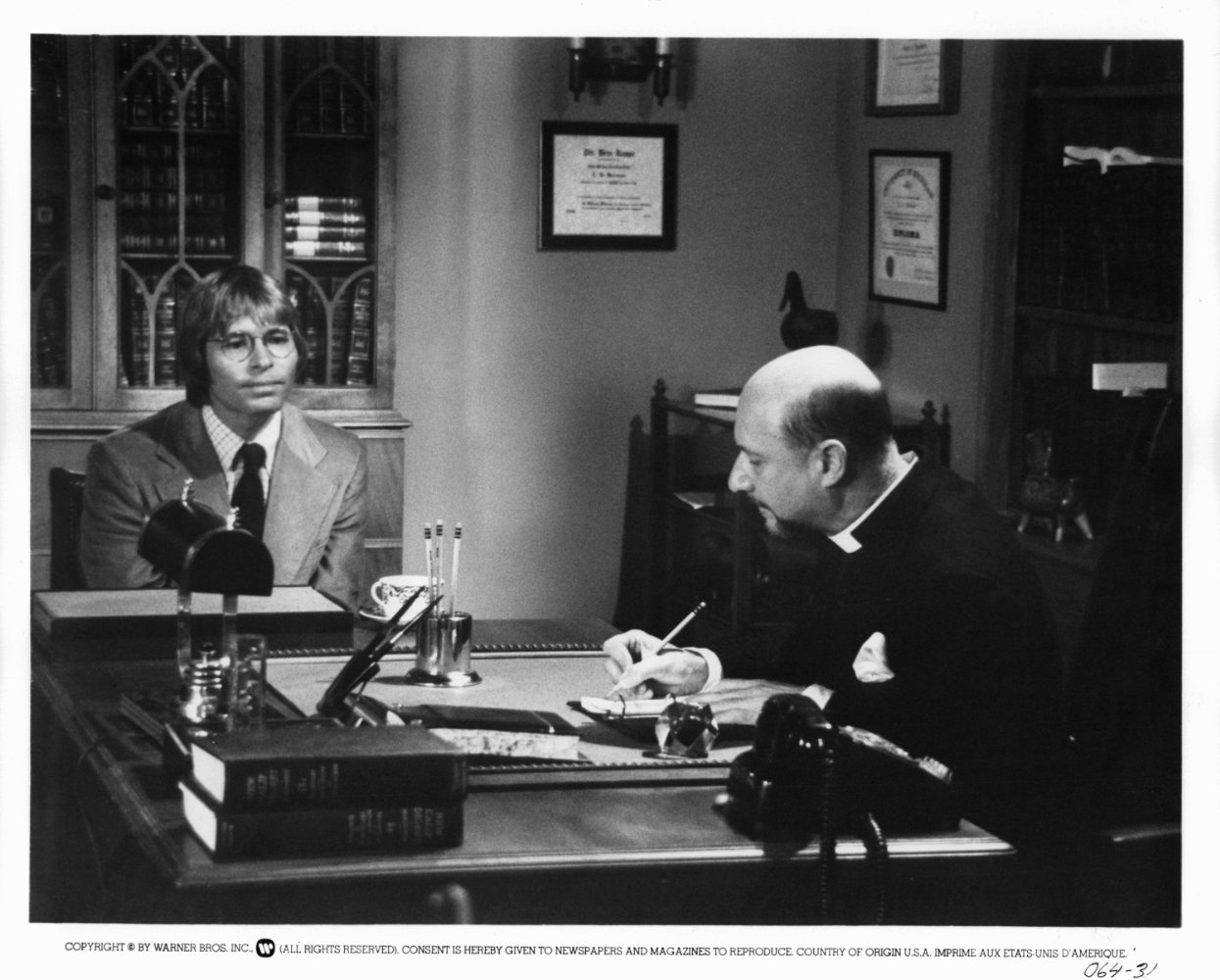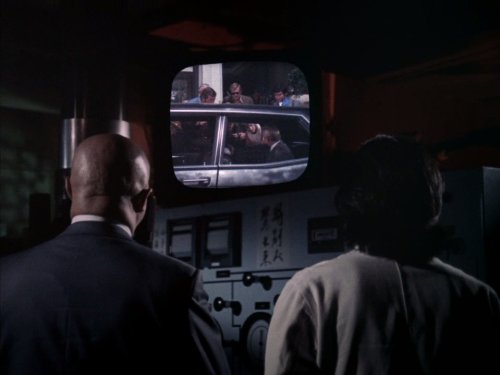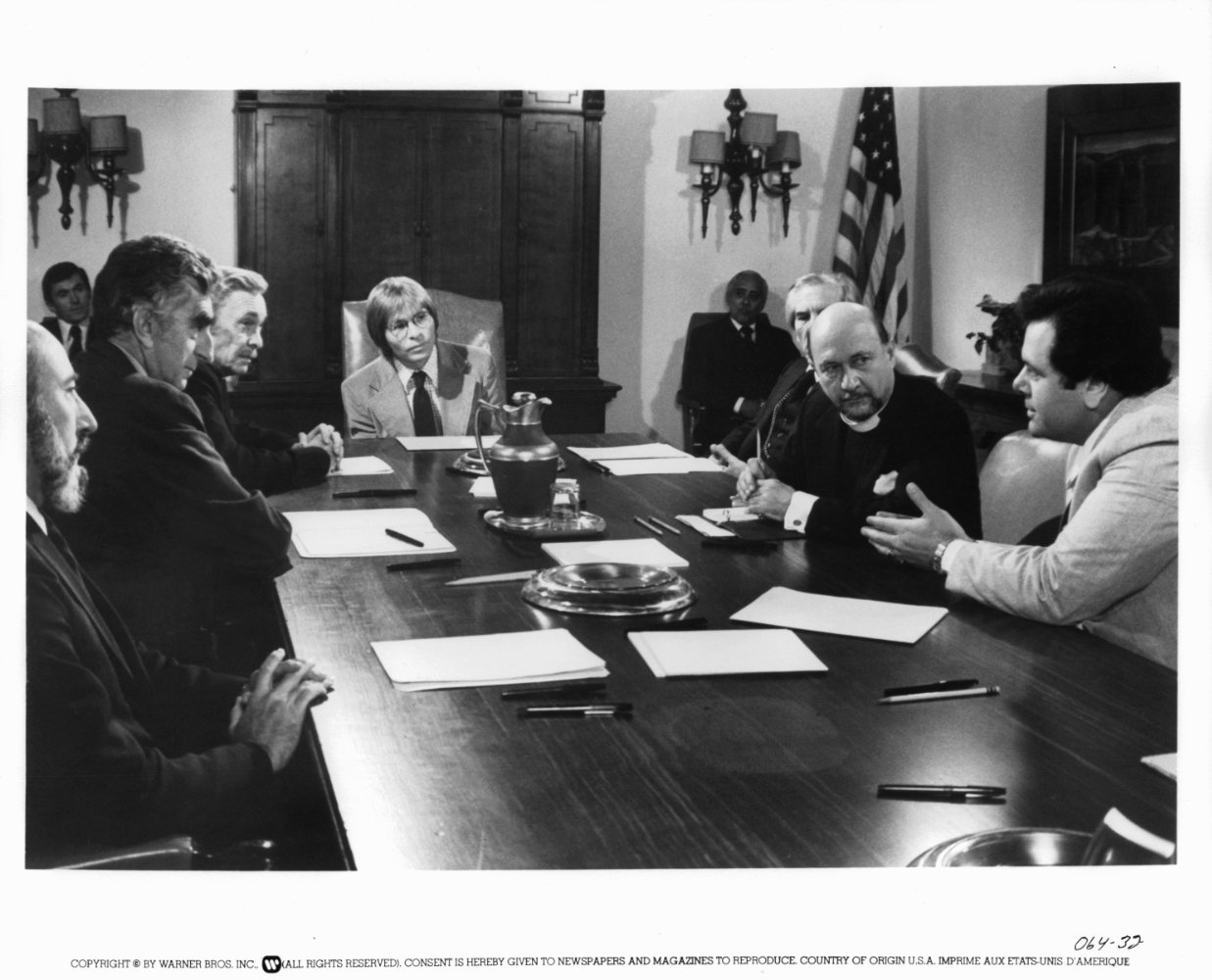Balding, quietly-spoken, of slight build and possessed of piercing blue eyes -- often peering out from behind round, steel-rimmed glasses -- Donald Pleasence had the necessary physical attributes which make a great screen villain. In the course of his lengthy career, he relished playing the obsessed, the paranoid and the purely evil. Even the Van H...
Show more »
Balding, quietly-spoken, of slight build and possessed of piercing blue eyes -- often peering out from behind round, steel-rimmed glasses -- Donald Pleasence had the necessary physical attributes which make a great screen villain. In the course of his lengthy career, he relished playing the obsessed, the paranoid and the purely evil. Even the Van Helsing-like psychiatrist Sam Loomis in the Halloween (1978) franchise seems only marginally more balanced than his prey. An actor of great intensity, Pleasence excelled on stage as Shakespearean villains. He was an unrelenting prosecutor in Jean Anouilh's "Poor Bitos" and made his theatrical reputation in the title role of the seedy, scheming tramp in Harold Pinter's "The Caretaker" (1960). On screen, he gave a perfectly plausible interpretation of the head of the SS, Heinrich Himmler, in The Eagle Has Landed (1976). He was a convincingly devious Thomas Cromwell in Henry VIII and His Six Wives (1972), disturbing in his portrayal of the crazed, bloodthirsty preacher Quint in Will Penny (1967); and as sexually depraved, alcohol-sodden 'Doc' Tydon in the brilliant Aussie outback drama Wake in Fright (1971). And, of course, he was Ernst Stavro Blofeld in You Only Live Twice (1967). These are some of the films, for which we may remember Pleasence, but there was a great deal more to this fabulous, multi-faceted actor.Donald Henry Pleasence was born on October 5, 1919 in Worksop, Nottinghamshire, England, to Alice (Armitage) and Thomas Stanley Pleasence. His family worked on the railway; his grandfather had been a signal man and both his brother and father were station masters. When Donald failed to get a scholarship at RADA, he joined the family occupation working as a clerk at his father's station before becoming station master at Swinton, Yorkshire. While there he wrote letters to theatre companies eventually being accepted by one on the island of Jersey in Spring 1939 as an assistant stage manager. On the eve of World War II, he made his theatrical debut in "Wuthering Heights". In 1942, he played Curio in "Twelfth Night", but his career was then interrupted by military service in the RAF. He was shot down over France, incarcerated and tortured in a German POW camp. Once repatriated, Donald returned to the stage in Peter Brook's 1946 London production of "The Brothers Karamazov" with Alec Guinness although he missed the opening due to measles, followed by a stint on Broadway with Laurence Olivier's touring company in "Caesar and Cleopatra" and "Anthony and Cleopatra". Upon his return to England, he won critical plaudits for his performance in "Hobson's Choice". In 1952, Donald began his screen career, rather unobtrusively, in small parts. He was only really noticed once having found his métier as dastardly, sneaky Prince John in The Adventures of Robin Hood (1955). It took several more years, until international recognition came his way: first, through the filmed adaptation of The Caretaker (1963); and, secondly, with his blind forger in The Great Escape (1963), a role imbued with added conviction due to his own wartime experience.Some of his best acting Donald reserved for the small screen. In 1962, the producer of The Twilight Zone (1959), Buck Houghton, brought Donald to the United States ('damn the expense'!) to guest star in the third season episode "The Changing of the Guard". He was given a mere five days to immerse himself in the part of a gentle school teacher, Professor Ellis Fowler, who, on the eve of Christmas is forcibly retired after fifty-one years of teaching. Devastated, and believing himself a failure who has made no mark on the world, he is about to commit suicide when the school's bell summons him to his classroom. There, he is confronted by the spirits of deceased students who exhort him to consider that his lessons have had fundamental effects on their lives, even leading to acts of great heroism. Upon hearing this, Fowler is now content to graciously accept his retirement. Managing to avoid maudlin sentimentality, Donald's performance was intuitive and, arguably, one of the most poignant ever accomplished in a thirty-minute television episode. Once again, against type, he was equally delightful as the mild-mannered Reverend Septimus Harding in Anthony Trollope's The Barchester Chronicles (1982). Whether eccentric, sinister or given to pathos, Donald Pleasence was always great value-for-money and his performances have rarely failed to engage.
Show less «

